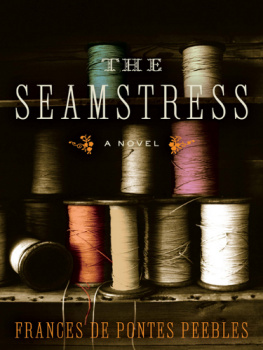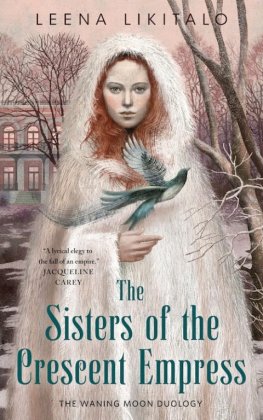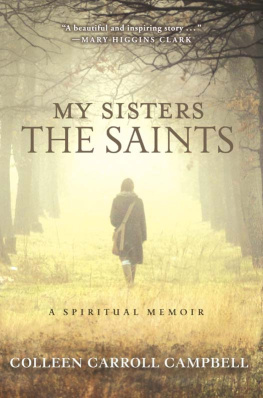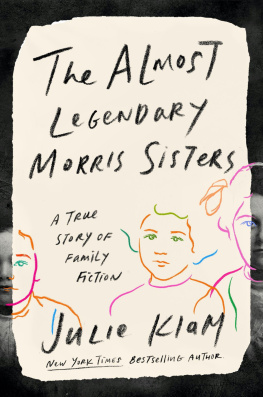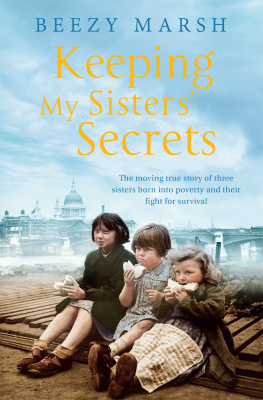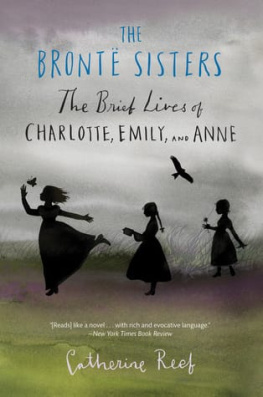rising toward a saint
still honored in these parts,
the paper chambers flush and fill with light
that comes and goes, like hearts
receding, dwindling, solemnly
and steadily forsaking us,
or, in the downdraft from a peak,
suddenly turning dangerous
Elizabeth Bishop, The Armadillo
Recife, Brazil
January 14, 1935
E mlia awoke alone. She lay in the massive antique that had once been her mother-in-laws bridal bed and was now her own. It was the color of burnt sugar with clusters of cashew fruits carved into its giant head-and footboard. The meaty, bell-shaped fruits that emerged from the jacarand wood looked so smooth and real that, on her first few evenings in this bed, Emlia had imagined them ripening overnighttheir wooden skins turning pink and yellow, their solid meat becoming soft and fragrant by morning. By the end of her first year in the Coelho house, Emlia had given up such childish imaginings.
Outside, it was dark. The street was quiet. The Coelho familys white house was the largest of all of the newly built estates on Rua Real da Torre, a recently paved road that stretched from the old Capunga Bridge and out into unclaimed swampland. Emlia always woke before sunrise, before peddlers invaded Recifes streets with their creaking carts and their voices that rose to her window like the calls of strange birds. In her old home in the countryside, shed been accustomed to waking up to roosters, to her aunt Sofias whispered prayers, and most of all, to her sister Luzias breath, even and hot against her shoulder. As a girl, Emlia had disliked sharing a bed with her sister. Luzia was too tall; she kicked open the mosquito net with her long legs. She stole the covers. Their aunt Sofia couldnt afford to buy them separate beds and insisted it was good to have a sleeping companionit would teach the girls to occupy little space, to move gently, to sleep silently, preparing them to be good wives.
In the first days of her marriage, Emlia had kept to her side of the bed, afraid to move. Degas complained that her skin was too warm, her breathing too loud, her feet too cold. After a week, hed moved across the hall, back to the snug sheets and narrow mattress of his childhood bed. Emlia quickly learned to sleep alone, to sprawl, to take up space. Only one male shared her room and he slept in the corner, in a crib that was quickly becoming too small to hold his growing body. At three years of age, Expeditos hands and feet nearly touched the cribs wooden bars. One day, Emlia hoped, he would have a real bed in his own room, but not here. Not while they lived in the Coelhos house.
The sun rose and the sky lightened. Emlia heard shouting in the streets. Six years before, on her first morning in the Coelho house, Emlia had trembled and held the bedsheet to her chest until she realized the voices outside the gates were not intruders. They were not calling her name, but the names of fruits and vegetables, baskets and brooms. Each Carnaval, the peddlers voices were replaced by the thunderous beating of maracatu drums and the drunken shouts of revelers. Five years earlier, during the first week of October, the peddlers had disappeared completely. Throughout Brazil there were gunshots and calls for a new president. By the next year, things had calmed. The government had changed hands. The peddlers returned.
Emlia now found comfort in their voices. The men and women sang the names of their wares: Oranges! Brooms! Alpercata sandals! Belts! Brushes! Needles! Their voices were strong and cheerful, a relief from the whispers Emlia had endured all week. A long, black ribbon hung from the bell attached to the Coelhos iron gate. The ribbon warned neighbors, the milkman, the ice wagon, and all delivery boys dropping off flowers and black-bordered condolence cards that this was a house in mourning. The family inside was nurturing its grief, and should not be disturbed by loud noises or unnecessary visits. Those who rang the bell did so tentatively. Some clapped to announce their presence, afraid to touch the black ribbon. The peddlers ignored it. They shouted over the fence, their voices carrying past the massive metal gate, through the Coelho houses drawn curtains, and into its dark hallways. Soap! String! Flour! Thread! The peddlers didnt concern themselves with death; even grieving people needed the things the peddlers sold, the small necessities of life.
Emlia rose from bed.
She slipped a dress over her head but didnt zip it; the noise might wake Expedito. He lay diagonally across his crib, safely beneath mosquito netting. His forehead shone with sweat. His mouth was set in a tight line. Even in sleep he was a serious child. Hed been that way as an infant, when Emlia had discovered him. Hed been skinny and covered in dust. A foundling, the maids called him. A child of the backlands. He was born there during the infamous drought of 1932. It was impossible that he would remember his real mother, or those first hard months of his life, but sometimes, when Expedito stared at Emlia with his dark, deep-set eyes, he had the stern and knowing look of an old man. Since the funeral hed often looked at Emlia in this way, as if reminding her that they should not linger in the Coelho house. They should travel back to the countryside, for his sake as well as hers. They should deliver a warning. They should fulfill their promise.
Emlia felt a pinch in her chest. All week shed felt as if there was a rope within her, stretched from her feet to her head and knotted at her heart. The longer she remained in the Coelho house, the more the knot tightened.
She left the room and zipped up her dress. The fabric gave off a sharp, metallic smell. It had been soaked in a vat of black dye and then dipped in vinegar, to set the new color. The dress had been light blue. It was cut in a modern style with soft, fluttering sleeves and a slim skirt. Emlia had been a trendsetter. Now all of her solid-colored dresses were dyed black and her patterned ones packed away until her year of mourning was officially over. Emlia had hidden three dresses and three bolero jackets in a suitcase under her bed. The jackets were heavy; each had a thick wad of bills sewn into its satin lining. Emlia had also packed a tiny valise with Expeditos clothing, shoes, and toys. When they escaped from the Coelho house, shed have to carry the bags herself. Knowing this, shed packed only necessities. Before her marriage, Emlia had placed too much stock in luxuries. Shed believed that fine possessions had the power to transform; that owning a stylish dress, a gas stove, a tiled kitchen, or an automobile would erase her origins. Such possessions, Emlia had thought, would make people look past the calluses on her hands or her rough country manners, and see a lady. After her marriage and her arrival in Recife, Emlia discovered this wasnt true.

